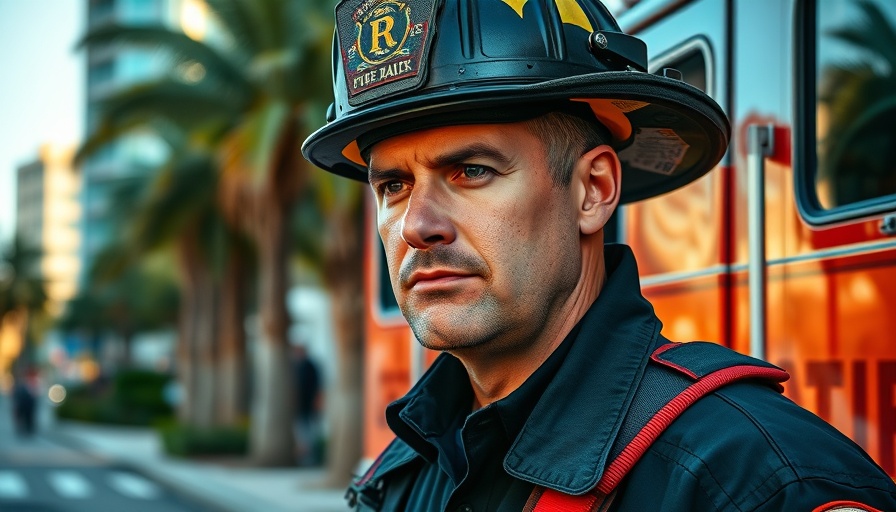
The Fallout From a Devastating Fire in L.A.
In February, the Pacific Palisades area of Los Angeles faced a wildfire tragedy that not only tore through the community, leading to the destruction of nearly 7,000 homes and the tragic loss of 12 lives, but also ignited a political firestorm involving the city's leadership. Former L.A. Fire Chief Kristin Crowley has stepped into the spotlight, claiming that Mayor Karen Bass orchestrated a campaign of misinformation that ultimately led to her being ousted as chief. This dramatic turn of events raises critical questions about accountability, safety protocols, and public trust in emergency services.
Campaign of Misinformation: How the Narrative Shifted
According to Crowley's claims, the mayor aimed to deflect criticism for her handling of the wildfire response by scapegoating her former chief. Following the incident, Bass's approval of the fire department's preparedness turned into blame as public scrutiny intensified regarding her absence from Los Angeles during a critical period. The legal claim from Crowley suggests that the mayor misrepresented facts about the department's response, alleging that Crowley sent firefighters home despite the impending danger — a narrative that has fueled the fire of public distrust.
The Human Cost: Community Voices
For the residents of Pacific Palisades, the aftermath of the fire is painfully personal. Families lost their homes, and the community is grappling with the emotional toll of this disaster. As Crowley's accusations surface, many locals are left wondering about the adequacy of their leadership during a crisis. This incident not only underscores the importance of transparent communication in governance but also highlights the need for stronger ties between city officials and the communities they serve. Community members are yearning for assurance that their local government is equipped to safeguard their safety, especially in times of urgent need.
Future Implications for Fire Safety in L.A.
This high-profile legal claim has the potential to reshape how L.A. prepares for and responds to wildfire threats, particularly as climate change continues to amplify the risks associated with such events. With the state of California frequently battling wildfires in the wake of climate evolution, there’s growing concern over the level of funding and resources allocated toward fire preparedness and response. The situation illustrates an urgent need for elected officials to not only support but also visibly advocate for emergency services, ensuring they are truly prepared to face the unpredictable nature of wildfires.
Understanding the Legal Landscape
Crowley’s legal claim against the city is a pivotal moment that could set precedents regarding the accountability of public figures during crises. Should Crowley prevail, it might prompt a re-evaluation of how public safety officials communicate and the protocols they follow during emergencies. Meanwhile, experts warn that such narratives can undermine the general public’s trust in emergency services, which is critical for effective disaster response.
Public Response and Engagement: Unity in Crisis
Community response has evolved directly in reaction to the events following the Palisades fire, with residents advocating for more collaboration between local government and fire services. Activism is blooming as residents seek assurances from their leaders regarding fire safety measures and emergency preparedness. Empowered voices in Pacific Palisades are now calling for better infrastructure and community safety measures, emphasizing the importance of unity and transparency when facing common challenges.
This narrative not only brings to light crucial questions about leadership accountability but also illustrates the profound effects of political maneuvering on public trust and safety. As the situation unfolds, one can only hope that it catalyzes meaningful change in how we approach safety in our increasingly volatile climate.
Take Action: Be Advocates for Safety
As the events surrounding the Palisades fire continue to develop, it’s crucial for communities to stay informed and engaged. Attend local city council meetings, voice your concerns, and advocate for robust safety measures in your area. After all, a safe community begins with proactive citizens.
 Add Row
Add Row  Add
Add 



Write A Comment